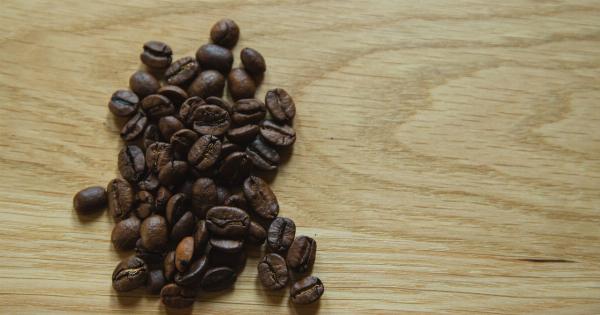Dehydration occurs when the body loses more fluids than it takes in. This can happen due to various reasons such as excessive sweating, not drinking enough water, vomiting, and diarrhea.
Dehydration can cause mild to severe symptoms and can be fatal if left untreated. Therefore, it is important to know how to spot dehydration in yourself and others to prevent any complications.
Symptoms of Dehydration
Dehydration can cause different symptoms depending on the severity of the condition. Here are some common symptoms of dehydration:.
1. Thirst
The first and most obvious sign of dehydration is thirst. When the body is dehydrated, it sends a signal to the brain that it needs more water. However, thirst is not always a reliable indicator of dehydration, especially in children and older adults.
2. Dark-colored urine
Dark-colored urine is a sign that the body is not getting enough water. When urine is dark yellow or amber, it means that the kidneys are conserving fluids to prevent dehydration.
3. Dry mouth and throat
When the body is dehydrated, the production of saliva decreases, causing a dry mouth and throat. This can also lead to bad breath and difficulty swallowing.
4. Fatigue and weakness
Dehydration can lead to fatigue and weakness due to a decrease in blood volume and blood pressure. The body must work harder to pump blood, causing muscles to tire quickly.
5. Dizziness and lightheadedness
Dehydration can cause dizziness and lightheadedness when the body lacks enough fluid to maintain proper blood flow and pressure to the brain.
6. Headaches
Headaches are a common symptom of dehydration, especially in combination with other symptoms. Dehydration can cause blood vessels in the brain to narrow, leading to headaches and migraines.
7. Dry skin
Dehydration can cause dry, itchy, and flaky skin due to a lack of moisture. This can also make the skin more susceptible to wrinkles and other signs of aging.
8. Rapid heartbeat
When the body is dehydrated, the heart must work harder to maintain blood pressure and circulate blood. This can cause a rapid heartbeat, especially during exercise or physical activity.
9. Sunken eyes
Sunken eyes can be a sign of severe dehydration, especially in children. When the body lacks fluid, the eyes can appear sunken or have dark circles around them.
10. Confusion and irritability
In severe cases of dehydration, the brain can be affected, causing confusion, irritability, and even delirium. This is a medical emergency and requires immediate treatment.
How to Prevent Dehydration
The best way to prevent dehydration is to drink plenty of fluids and eat foods that contain water. Here are some tips to prevent dehydration:.
1. Drink water
The recommended daily intake of water is 8 glasses for adults, but this varies depending on activity level, climate, and health status. Always carry a water bottle with you and drink water throughout the day, even if you don’t feel thirsty.
2. Eat foods high in water content
Foods such as fruits, vegetables, soups, and smoothies contain high amounts of water and can help keep the body hydrated. Some examples of hydrating foods include watermelon, cucumber, celery, and spinach.
3. Avoid alcohol and caffeinated beverages
Alcohol and caffeinated beverages such as coffee and tea can lead to dehydration by increasing urine output. Limit these drinks or drink them in moderation.
4. Wear appropriate clothing
Wear lightweight and breathable clothing when you are outdoors in hot weather. This can help prevent excessive sweating and dehydration.
5. Take breaks during physical activity
If you are exercising or doing physical activity, take breaks and drink water every 15-20 minutes to prevent dehydration.
6. Monitor your fluid intake
Keep track of how much water you are drinking and adjust your intake accordingly. If you are sweating heavily, you may need to drink more water than usual.
7. Pay attention to symptoms
If you experience any symptoms of dehydration, stop what you are doing and drink fluids immediately. Ignoring symptoms can lead to more serious complications.
When to Seek Medical Attention
Dehydration can be a serious condition, especially if it is left untreated. Here are some signs that you should seek medical attention:.
1. Severe symptoms
If you experience severe symptoms such as confusion, dizziness, or vomiting, seek medical attention immediately. These can be signs of a medical emergency.
2. Diarrhea or vomiting
If you are experiencing diarrhea or vomiting, you may become dehydrated quickly. Seek medical attention if you cannot keep fluids down.
3. Fever or other illness
If you have a fever or are experiencing other illness symptoms, you may need to drink more fluids than usual to prevent dehydration.
4. Chronic illness
If you have a chronic illness such as diabetes or kidney disease, you may be at risk for dehydration. Speak with your healthcare provider about how much water you need to drink and any other precautions you should take.
Conclusion
Dehydration can be a serious condition if it is left untreated. Knowing how to spot dehydration in yourself and others can prevent complications and keep you healthy.
Remember to drink plenty of fluids, eat hydrating foods, and seek medical attention if you experience severe symptoms.




























